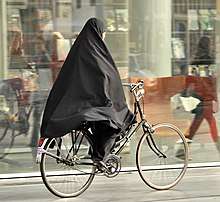GCSE Science
In the United Kingdom education system, science at GCSE level is studied through Biology, Chemistry and Physics.[1]



Single Award
Single Award Science results in one GCSE. A pupil choosing this subject has a wider range of other science subjects to study at GCSE than those taking Double Award Science. Those passing Single Award Science can progress to A Levels in science-based subjects, although most secondary schools do not allow those with single award science to study A levels in Biology, Chemistry or Physics.
Double Award
Double Award Science or Dual Award results in two GCSEs. Those passing their GCSEs in Double Award Science can progress to A Levels in all of the three natural science subjects.
Pupils taking Double Award Science in England study a total of two topics (three including subtopics) per subject.
AQA
AQA offer two different double awards titled Synergy and Trilogy.[2]
CCEA
In Northern Ireland, pupils sit two units in each of the science subjects (Biology, Chemistry and Physics) as well as a "Practical Skills" unit (from 2017) which examines pupils' ability to carry out practical tasks inside the laboratory and analyse data related to scientific investigations. It is awarded by the examining body CCEA.[3]
Triple Award
Triple Award Science results in three separate GCSEs in Biology, Chemistry and Physics.
The course is usually studied throughout Years 10 and 11 (Years 11 and 12 in Northern Ireland) but may be started in the later stages of Year 9 (Year 10 in Northern Ireland). The course provides the broadest coverage of the main three science subjects.
The course is offered by the five main awarding bodies in the United Kingdom; AQA, Edexcel, OCR, CIE and WJEC. In Northern Ireland the awarding board is CCEA.
OCR
OCR have awarded a Triple Science award since 2007 through their 21st Century Science programme. The course aims to develop scientific literacy.
For the 2012 specifications, OCR's singular award science has 3 modules of work. In their double award there are 6 modules. Their Triple Science Award has 7 modules for each science, which are made up of the six modules from double award and an extra one module from each science.
- The Biology module is called "Biology across the Ecosystem"
- The Chemistry module is called "Chemistry for a Sustainable World"
- The Physics module is called "Observing the Universe".[4]
All of the exam boards offering triple science have new specifications with first examinations in June 2018. Many schools have begun teaching this to year 9 students in 2015–16, while others started teaching the new specifications to year 10 students in September 2016.
References
- BBC Bitesize https://www.bbc.co.uk/bitesize/articles/zrjh92p
- AQA https://www.aqa.org.uk/subjects/science/gcse/combined-science-synergy-8465
- Multimedia, CCEA |. "General Science Microsite > Revised GCSE". www.rewardinglearning.org.uk. Retrieved 2018-06-14.
- http://www.21stcenturyscience.org/the-courses/triple-science,1423,NA.html